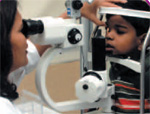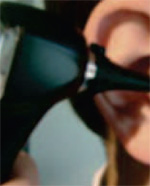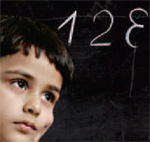Bringing a newborn into the world is a joyous occasion, but it also comes with the tremendous responsibility of ensuring the safety and well-being of your precious bundle of joy. As we observe Newborn Safety Week in November, it’s crucial for new parents to be equipped with essential safety tips to create a secure environment for their little one.
Common Neonatal Health problems
Your newborn baby’s health is very vulnerable because a baby’s immunity has not developed yet in the first month of their life. Here are some common health complications that may affect your newborn:
- Neonatal infections
- Respiratory distress
- Lung damage
- Rapid breathing
- Sudden Infant Death Syndrome (SIDS)
Although every newborn is different and has different needs, there are a few common symptoms in newborns, which if diagnosed early, could be life-saving. Symptoms of excessive crying, irritability, lips or fingers turning blue, high fever, unusual skin rashes or redness need immediate medical attention.
Safety tips for New Parents
Here are some paediatrician recommended safety tips to protect your newborn from health complications:
- Hygiene and Handwashing
Newborns have developing immune systems, making hygiene a top priority. Wash your hands thoroughly before handling your baby, and encourage visitors to do the same. Keep hand sanitizer in key areas of your home to maintain a germ-free environment and reduce the risk of infections. - Feeding Safety
Whether breastfeeding or bottle-feeding, prioritize your baby’s safety during feeding times. Check the temperature of formula or breast milk to avoid burns, and always support your baby’s head and neck during feeding. If using a bottle, choose one with a nipple appropriate for your baby’s age to prevent choking hazards. - Safe Sleep Practices
One of the foremost concerns for new parents is ensuring a safe sleep environment for their newborn. Always place your baby on their back to sleep, use a firm mattress with a fitted sheet, and avoid soft bedding or toys in the crib. These simple steps significantly reduce the risk of Sudden Infant Death Syndrome (SIDS) and create a secure sleep haven for your baby. - Use of Car Seats
Familiarize yourself with the proper installation and use of a car seat. Ensure it is securely fastened in the back seat, facing the rear until your child reaches the appropriate weight and age for a forward-facing seat. - Temperature Control
Newborns are sensitive to changes in temperature, so it’s crucial to maintain a comfortable environment. Dress your baby in layers to regulate their body temperature, and avoid overheating by keeping the room at a moderate temperature. Use lightweight blankets for sleep, and never cover your baby’s head. - Regular Check-ups and Vaccinations
Stay on top of your baby’s health by scheduling regular check-ups and vaccinations. These appointments not only track your baby’s growth and development but also provide crucial immunizations to protect against preventable diseases. Consult your pediatrician to create a comprehensive vaccination schedule. - Emergency Preparedness
Accidents can happen, so it’s essential to be prepared for emergencies. Learn basic first aid, keep emergency contact information readily available, and create an emergency kit with essentials like bandages, thermometers, and any necessary medications.
By following these essential safety tips, you can create a secure and nurturing environment for your little one to thrive.
Newborn care at Kokilaben Dhirubhai Ambani Hospital
In our unwavering commitment to children’s health, our Centre for Children offers comprehensive and compassionate care for little ones. The centre boasts a spectrum of services addressing various health challenges affecting newborns, offering specialized support for developmental issues, infectious diseases, cancer, orthopedic concerns, and genetic disorders. With dedicated Pediatric Intensive Care Units (PICU) and Neonatal Intensive Care Units (NICU), we ensure specialized attention to critically ill children and newborns. The inclusion of High Frequency Jet Ventilation (HFJV) facilitates tailored care for children with complex lung problems, and the Neonatal Transport Incubator allows for specialized care at crucial times. Please find below the website details for further assistance: https://www.kokilabenhospital.com/departments/centresofexcellence/centrefor_children.html





